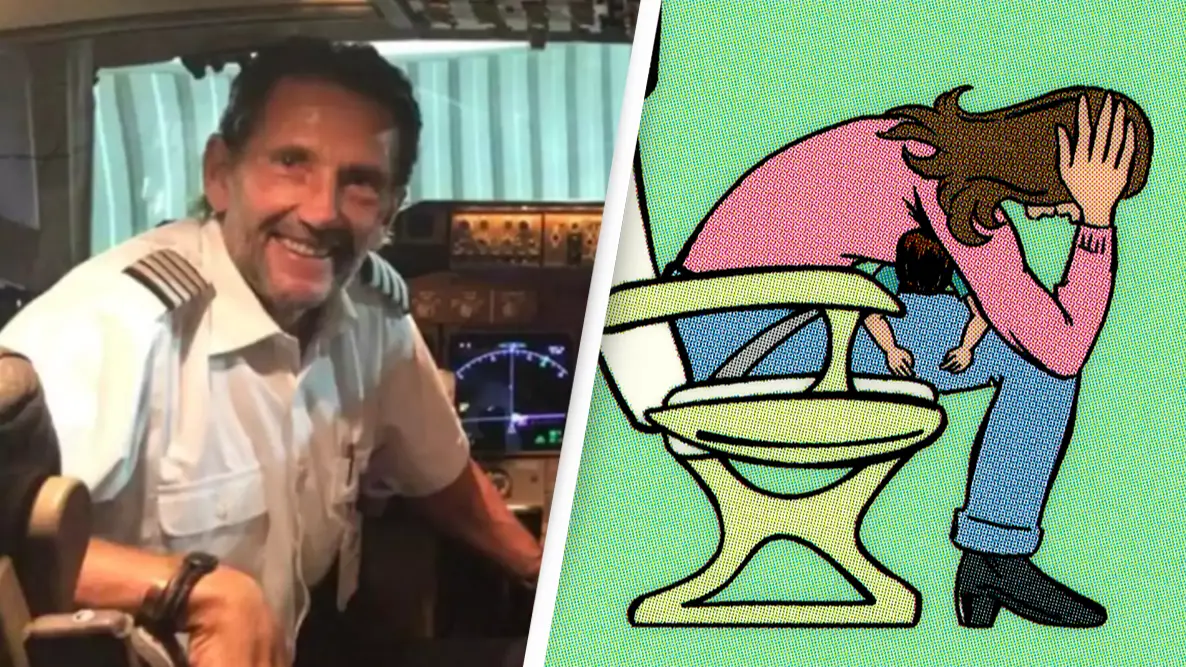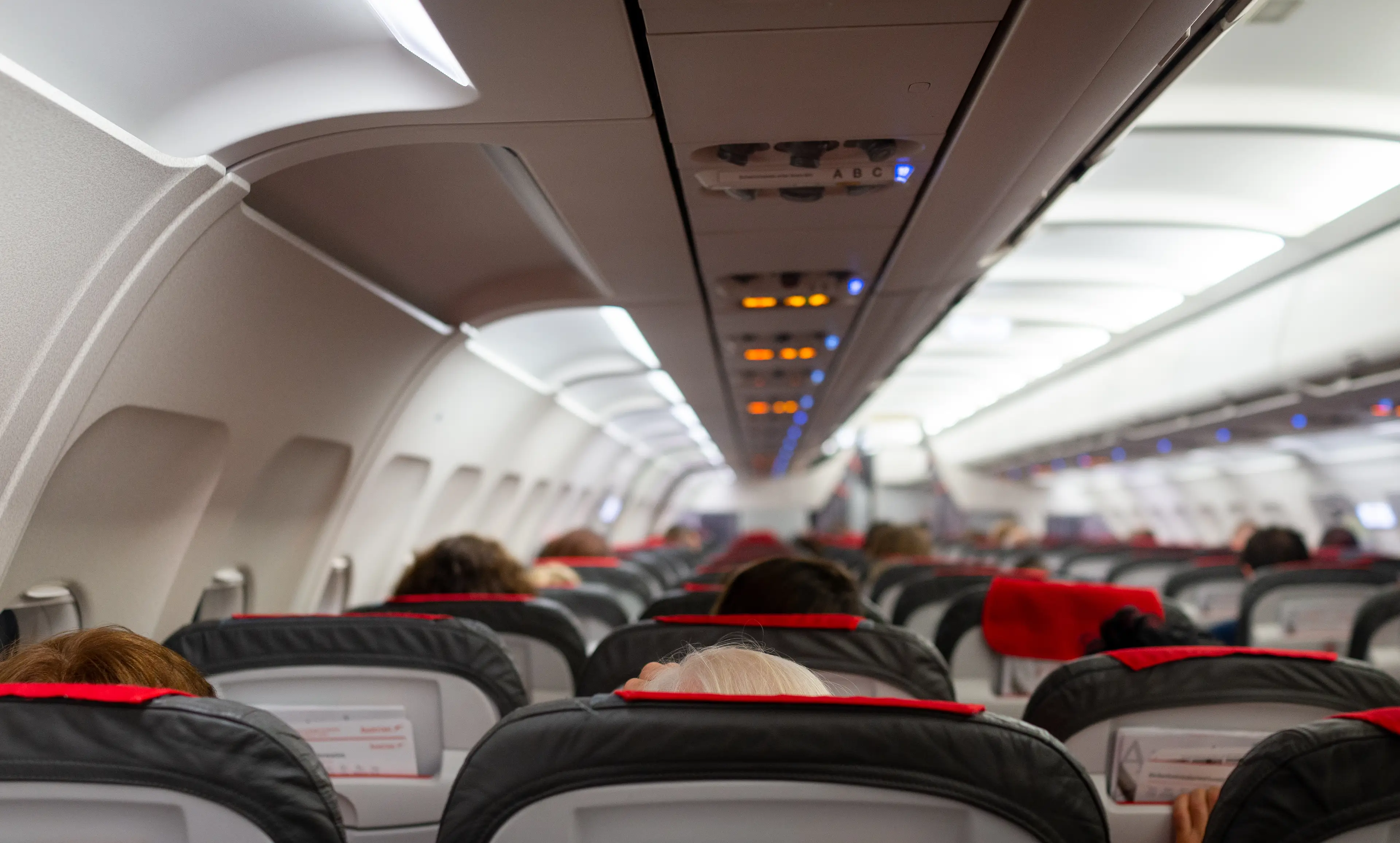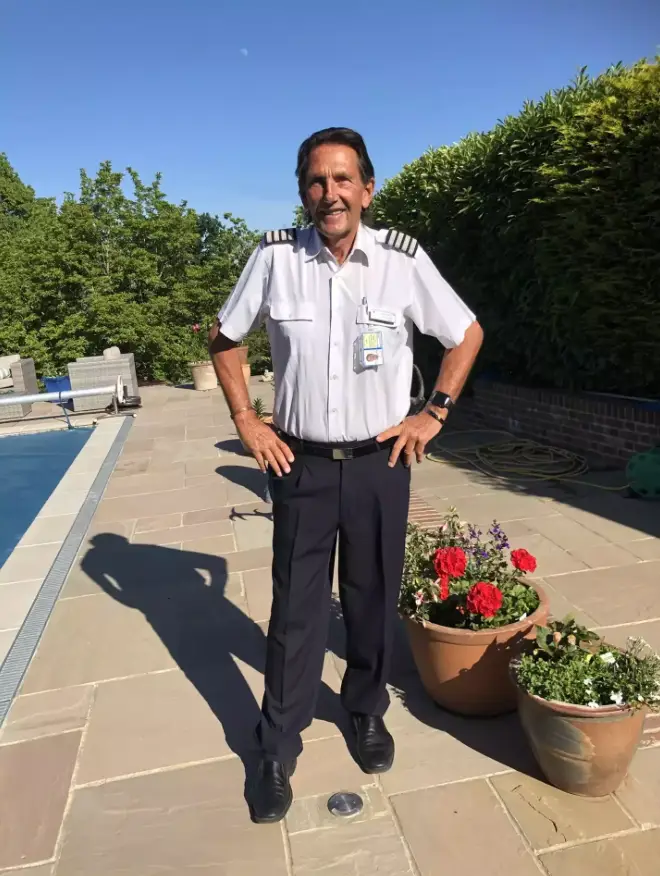
One of the world's most experienced pilots has explained the real reason why the brace position is used on planes.
Those who have ever been on an aircraft will know all about the flight attendant rundown of the safety procedures before takeoff.
Meanwhile, a flip through of an airline’s safety card will give you a step-by-step guide of how to brace in an emergency.
Advert
It involves bending forward and placing your hands over your head, which has led to many over the years questioning how effective it would be in the event of the unthinkable.
One particular chilling theory that has been circulating for years is that the position is used in order to immediately kill passengers in the event of a crash.

However, one of the world's most experienced pilots has put that ridiculous theory to bed.
Nick Eades, who claims to be the world's most experienced Boeing 747 pilot, told LADbible: "What you're trying to do is to stop people breaking their necks in a big impact.
"You're just trying to get the body into a position that's going to suffer least damage.
"It's like whiplash - you're trying to avoid that sudden movement of the head, which can result in serious injury, if not death."
Eades went on to explain that because of real-life emergency situations that have led to miscommunication about the position, cabin crew are no longer trained to tell passengers to 'brace'.

The pilot added: "I've had a couple where we had problems with the landing gear, and the cabin crew shouted to all the passengers 'brace, brace!'.
“Now, if you think about it, I would say at least half - probably three-quarters - of passengers on the aeroplane don't speak English as a first language.
“It took a long time for the aviation world to realise if you're suddenly thrown into an emergency situation and people start shouting 'brace' at you, you might think, 'what the hell do they mean?'”
Having been in the industry for more than 40 years, Eades recalled in the interview with LADbible a number of occasions where he faced technical difficulties and had to tell passengers to brace.
"I've had a couple where we had problems with the landing gear, and the cabin crew shout to all the passengers, 'Brace, brace!'" he explained.
"Now, if you think about it, I would say at least half - probably three-quarters - of passengers on the aeroplane don't speak English as a first language. And if you think about it, what does 'brace' mean?"
Topics: Travel
